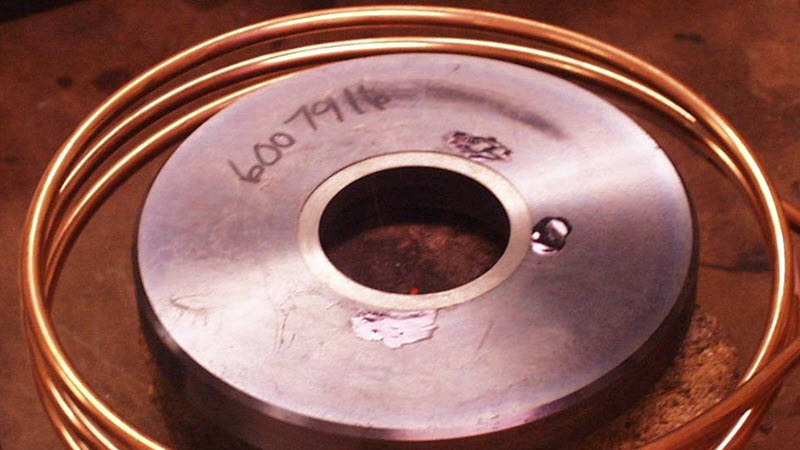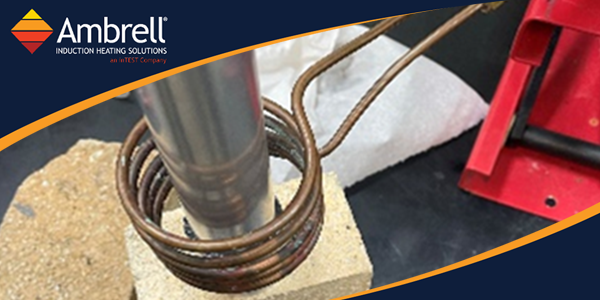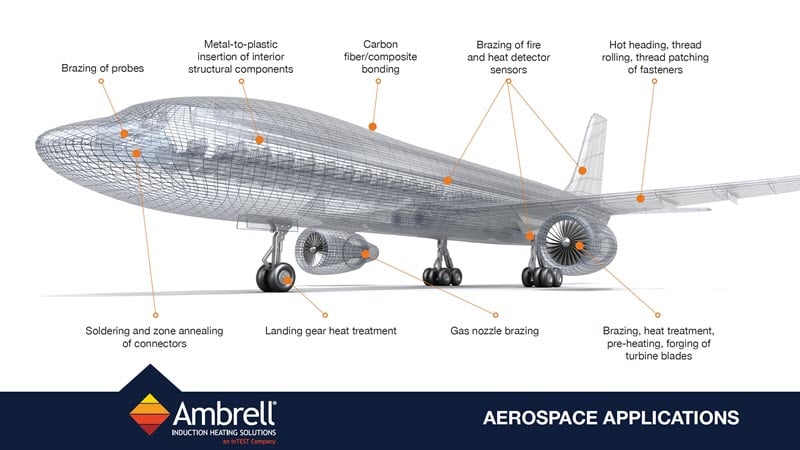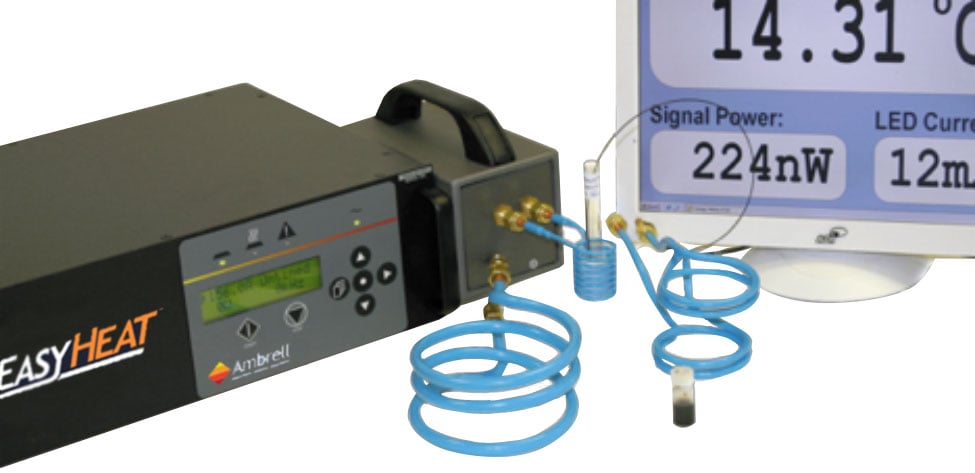Induction Brazing an Aluminum Assembly
Objective A company wanted to assess using induction heating for their aluminum assembly brazing process, and contacted THE LAB at Ambrell to utilize...
Applications
Applications: More
Applications: More

Industries:
Industries: More
Industries: More
Industries: More

Products:
Products: More
Services:
Services: More

Learn:
Learn: More
About:


A client contacted THE LAB at Ambrell because they needed to shrink fit a carbide ring into a valve seat. The materials that were used during testing were a steel valve seat and a carbide ring. THE LAB determined that an EASYHEATTM 10 kW, 150-400 kHz induction heating power supply with a three-turn helical coil to heat the steel valve seat would be the correct solution for this shrink fitting application.
First, initial tests were conducted to optimize the power delivered to the parts. Then THE LAB began parts testing. The steel valve seat was placed in the helical coil and heated for 50 seconds to enlarge the center hole. Then the carbide ring was dropped in to complete the shrink fitting process. Testing was successful and achieved all of the client's requirements.
For this client, getting a repeatable, reliable result time after time drove the decision to switch to induction heating. When compared to other heating methods for shrink fitting, induction's benefits include its speed along with its localized, repeatable, non-contact heating. Induction is also energy efficient, as it heats the part, not the atmosphere around the part. Finally, it's easily integrated into production lines due to its modest size, especially when you consider that the workhead can be placed away from the system itself.
THE LAB at Ambrell has a significant amount of experience with induction shrink fitting applications. Get a sampling of additional shrink fitting applications assessed by THE LAB. And, to learn more about free application testing, visit our page on THE LAB or contact us today to get the process started. There, you can also learn more about our recently introduced "Virtual Lab Service."

Objective A company wanted to assess using induction heating for their aluminum assembly brazing process, and contacted THE LAB at Ambrell to utilize...

Induction heating is a process that uses electromagnetic fields to heat electrically conductive materials. It has been used in numerous industries...

Induction heating, a process that uses electromagnetic induction to heat electrically conductive materials, is often thought of for large industrial...